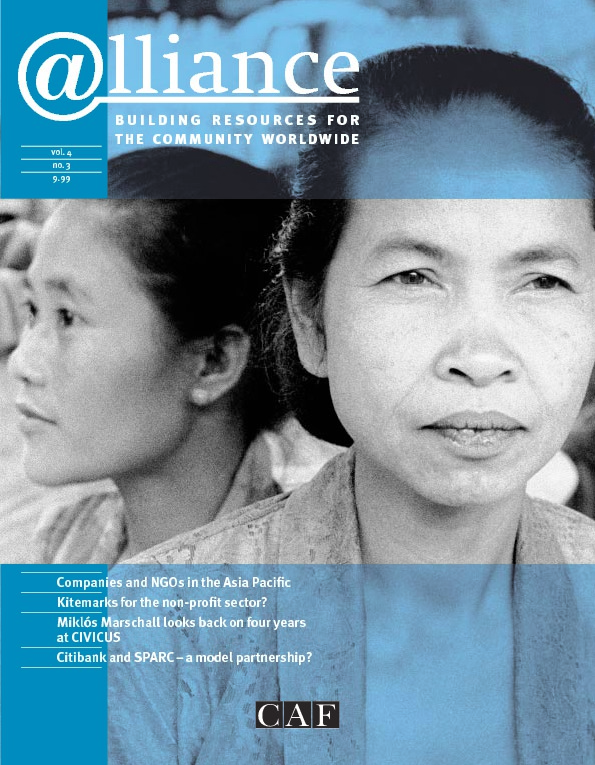One hallmark of international development in the 1990s is the growth of civic advocacy towards multilateral institutions operating within the aid system. Typically, but not solely, such advocacy is spearheaded by non-governmental development organizations (NGDOs).
This book reviews experience of civic advocacy towards the World Bank. Its primary lesson is: if you want to be a successful advocate, don’t try it alone. This message is summed up, graphically, on p 498.
Success, it is argued, depends on finding allies and building coalitions both within and outside the institution. Importantly, allies must combine a number of elements. These are:
- credibility for the civic messengers or advocates towards the Bank, founded on ‘technical’ professionalism and a legitimate case to be made, derived from local concerns and activism — such as protests – in the country concerned;
- non-patronage relations with those most likely to be affected – the grassroots — including ‘mandates’ that give sufficient assurance of civic accountability;
- political support from actors strategically located at critical decision-making sites: within the borrowing country’s civil society and governments, within World Bank staff, and within donor governments and their executive directors at the Bank.
Allying these elements in a common cause can create significant impact on World Bank operations, ie allocating development loans. Moreover, impact on specific loans can spill over into reform of World Bank policies. Examples are given of this effect on policies on lending for, inter alia, the environment, indigenous people, energy and resettlement. One concern emerging from such achievements is how reformed policies are actually translated into practice.
A key challenge for NGDOs arises from this study. Their critical task is to develop relationships with grassroots people and their organizations that do not reflect implicit patronage. This means not speaking for people, but alongside them; not substituting for their voices but providing bridges that bring local activism and legitimate claims into decision-making processes that are far away, both geographically and politically.
In short, the vital NGDO task is to negotiate downward accountability. NGDOs’ legitimacy and credibility as advocates depend on it. Unfortunately, for many NGDOs this is not a strong competence. Nor is it nourished or well promoted by the way the aid system works in its disbursement-driven practice, as opposed to its participatory and partnership rhetoric. Consequently, as this book shows, any initiatives to improve NGDO capability in advocacy would do well to ensure that ‘humble’ downward negotiation and complex coalition building are central parts of the curriculum.
Dr Alan Fowler is a development consultant, analyst and writer currently resident in Ethiopia. He can be contacted by email at AlanFowler@compuserve.com
The Struggle for Accountability: The World Bank, NGOs and grassroots movements
edited by Jonathan A Fox and L David Brown
MIT Press $30
To order contact John Wiley on +44 1243 779 777 or at cs-books@wiley.co.uk (UK) or contact MIT Press on or +1 617 625-8569 at mitpress-orders@mit.edu (US and elsewhere).



Comments (0)